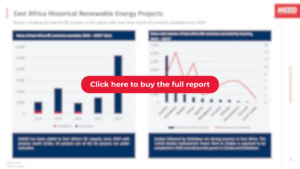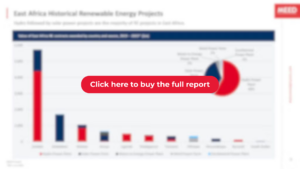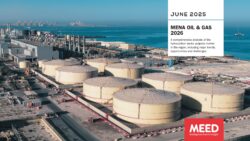Description
Middle East & Africa Renewable Energy Projects Report 2023
The MEA region is fast emerging for renewable energy investments. Regional governments are promoting RE Programs with significant long-term national renewable energy targets, looking to ramp up investments to support their objectives. Renewable projects in this report include solar power, hydro power, geothermal power, wind power and waste to energy power plants.
The report provides a detailed analysis of the project trends, opportunities and challenges in a market that is offering $375bn of renewable energy project opportunities.
The report is of high value to anyone seeking to identify opportunities, understand risks and set strategy in the region in 2023 and beyond.
Middle East & Africa Renewable Energy Projects Accelerate
The MEA region is on track to award a record value of renewable energy contracts worth a total of $70bn this year. Contracts worth $10bn have been awarded between January and mid-June of this year, which already equates to 85 per cent of the total value of contracts awarded in 2022.
These include the $3.25bn contracts awarded by Saudi sovereign wealth vehicle the Public Investment Fund (PIF) to Acwa Power for three new solar complexes, and the two contracts awarded by Oman for its Manah 1 and Manah 2 solar independent power projects (IPPs).
The impact of the Covid-19 pandemic interrupted the momentum of renewable energy projects across the region, with contract awards dipping in 2020. The sector posted a strong recovery in 2021 and 2022, with nearly $12bn-worth of contracts awarded in each year.
Most of those projects faced delays, however, in terms of reaching financial close and starting construction work, as engineering, procurement and construction (EPC) costs soared due to the pandemic-related supply chain constraints and the onset of the Russia-Ukraine war.
The situation started to improve in the second half of 2022 as the UAE’s two largest state utilities, Dubai Electricity & Water Authority (Dewa) and Emirates Water & Electricity Company (Ewec), initiated the procurement processes for their next utility-scale solar PV projects.
Saudi Arabia electricity offtaker Saudi Power Procurement Company (SPPC) joined the two utilities by launching the procurement process for the fourth round of its National Renewable Energy Programme (NREP), which comprises three wind IPPs with a total combined capacity of 1,800MW and two solar IPP projects with a total combined capacity of 1,500MW.
The low tariff submitted for the sixth phase of Dubai’s MBR Solar Park this year is $c1.62 a kilowatt-hour (kWh), which is higher than the average tariff seen in bids submitted a year earlier for the third round of Saudi Arabia’s NREP.
The pledges by these countries to significantly reduce their greenhouse gas emissions by the end of the decade, and their longer-term goals to achieve carbon neutrality by 2050 or 2060, are providing impetus to these projects despite the challenging business environment that project stakeholders must consider.
The region’s leading renewable adopters – Jordan, Morocco and Egypt – are expected to restart the procurement of additional renewable energy capacity, too, as they join GCC states like Oman, the UAE and Saudi Arabia in the race to build green hydrogen hubs and create a low-carbon export industry.
Even Iraq, Libya and Algeria have demonstrated minor progress in terms of their plans to deploy renewable energy to meet growing electricity demand. However, the lack of a suitable investment framework and a robust grid to accommodate intermittent renewable energy in those countries will remain key issues going forward.
While the Middle East and North Africa regularly make the headlines for their renewable energy developments, under the radar the other 48 nations of Sub-Saharan Africa are making good progress of their own. Blessed with high solar irradiation levels, attractive wind profiles and even some of the world’s best geothermal potential, the continent has all the elements needed for a sustainable power generation sector. Critically, it also has considerable hydropower resources.
The region’s commitment to renewable energy investment comes as the push for greater access to electricity using clean energy seeks to lower the environmental impact.
Who will benefit from the Middle East & Africa Renewable Energy Projects Report 2023?
- Bankers
- Power developers
- EPC contractors
- Solar panel manufacturers
- Wind turbine manufacturers
- Law firms
- Professional service firms
What is unique about this report?
- Gain insight into solar, hydro, geothermal, wind, waste to energy projects across the Middle East and Africa.
- Understand the current and upcoming project opportunities in each MEA country.
- Access key project details, including maps, bidders lists, procurement timeframe and technical details.
- Understand individual country strategies for their renewable energy development plans.
- Quantify the value of current and future renewable energy investment in each country.
- Access essential contact information for principal clients
- Understand the challenges involved in building renewable energy power plants in each country.
All the MEED Insight reports are delivered via email in digital version.







Reviews
There are no reviews yet.